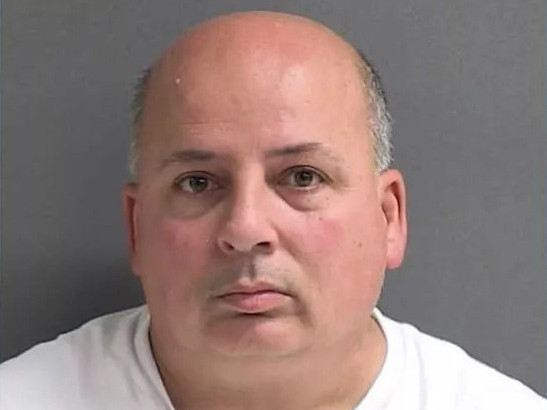
Johnny Noviello, a Canadian citizen and longtime US resident, died in the custody of US Immigration and Customs Enforcement (ICE) on 23 June. He was 49.
Noviello was being held at the Federal Detention Centre in Miami, Florida, as he awaited deportation following a 2023 conviction for drug-related offences. According to ICE, he was found unresponsive by detention staff around 12:54 p.m. Medical personnel initiated CPR and used a defibrillator before emergency responders from Miami Fire Rescue arrived. He was pronounced dead at 1:36 p.m.
The cause of death is still under investigation.
A Life Between Two Countries
Noviello's life straddled borders. According to ICE, he entered the United States legally in 1988 with a visa and became a lawful permanent resident, or green card holder, three years later. For more than three decades, he lived in the US legally.
However, his status changed dramatically last year, when he was convicted in Volusia County, Florida, on serious drug and racketeering charges. The offences included trafficking oxycodone and hydrocodone, as well as the unlawful use of a communication device to carry out a crime. He was sentenced to 12 months in prison.

His criminal defence lawyer, Daniel Leising, told CNN that Noviello served about 125 days of that sentence after receiving credit for time served and good behaviour. 'The last I heard from him was in February when a judge granted him community service,' Leising said.
From Probation to Deportation
On May 15, ICE arrested Noviello at a Florida probation office. The agency issued him a notice to appear for removal proceedings, citing his drug convictions as grounds for deportation. Although he had once entered the US legally, ICE classified him as a 'non-immigrant overstay' based on the nature of his offences.
His case fits into a broader immigration enforcement campaign that has focused heavily on non-citizens with criminal records. Under policies intensified during Donald Trump's presidency and revived in recent years, ICE has been under pressure to fast-track the deportation of immigrants with convictions for crimes such as drug trafficking, assault, and homicide.
However, the data tells a more complicated story. A recent analysis by The Independent revealed that only a third of the 185,000 people detained by ICE between October 2024 and May 2025 had criminal convictions. Of those, just 8% had been convicted of serious crimes. Many, like Noviello, had served their time and were living in the community at the time of arrest.
Death in Custody
According to reports, Noviello's death marks the eighth in ICE custody so far this year and the eleventh since October 2024. While the agency says detainees receive around-the-clock access to emergency care, there is increasing concern about standards of medical oversight in immigration facilities.
ICE says it is 'committed to ensuring that all those in its custody reside in safe, secure, and humane environments.' It has not yet released further details on the conditions surrounding Noviello's death, but a review is underway.
Historically, ICE has reported an average of six to eight deaths per year in custody, with a sharp spike during the COVID-19 pandemic. While that number may seem small compared to the total number of detainees, each death, critics say, points to potential gaps in care and accountability.
Meanwhile, the officials at the Canadian government who were informed about Noviello's death on Thursday said that they are trying to find more information about what happened at the centre. 'Canadian consular officials are urgently seeking more information from US officials,' Minister of Foreign Affairs Anita Anand said in a statement.
Johnny Noviello's story is not the first of its kind, but it is a stark example of how legal status, criminal history, and federal policy can intersect with life-or-death consequences. As investigations proceed, both American and Canadian officials are under pressure to clarify exactly what happened in those final hours and what changes may be necessary.






